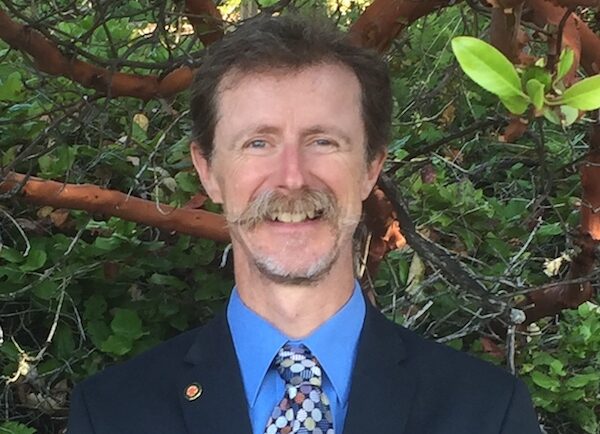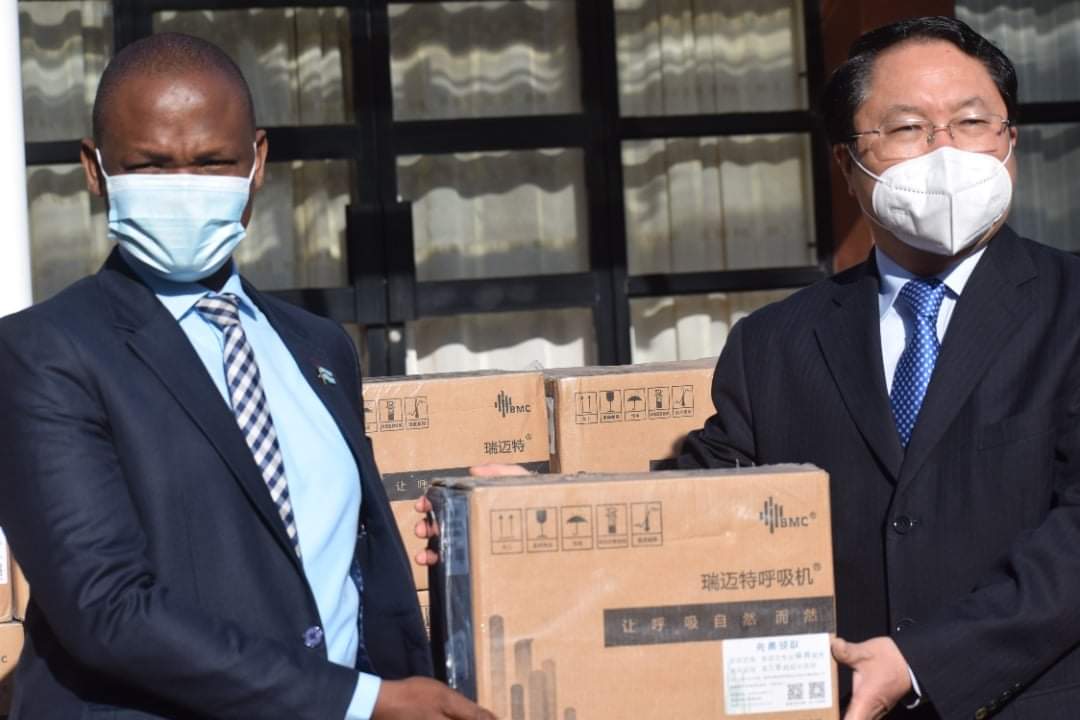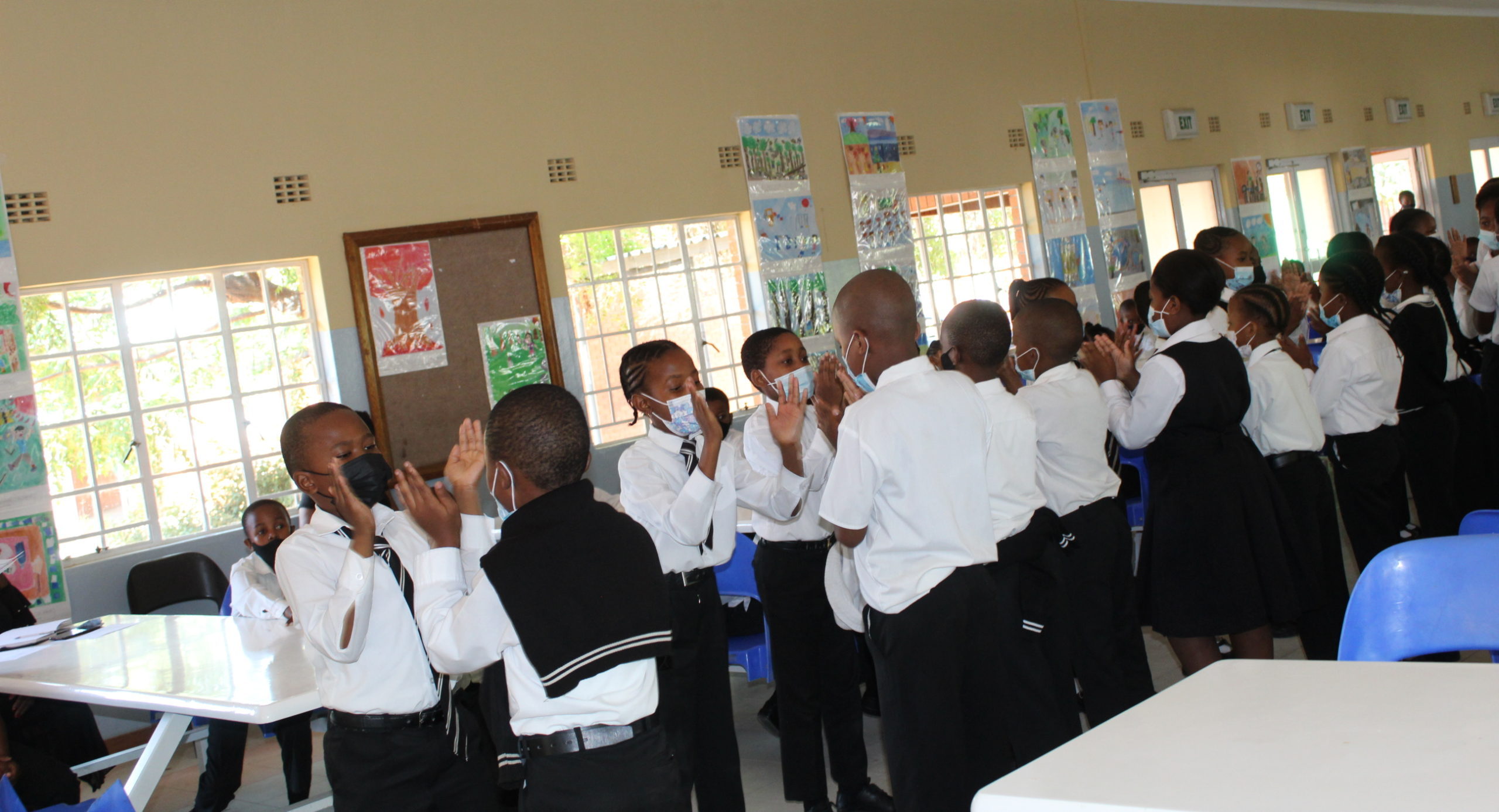
-UN-UN Special Rapporteur on human rights and the environment, David R. Boyd - UN photo
The Pan Afrikanist Watchman
GENEVA (27 September 2023) – The UN Special Rapporteur on human rights and the environment, David R. Boyd, will conduct a visit to Botswana from 3 to 11 October 2023.
The aim of the visit is to collect information and examine issues linked to the protection and promotion of human rights relating to the environment in the country.

The visit will coincide with the second anniversary of the recognition of the right to a clean, healthy and sustainable environment by the Human Rights Council.
“Botswana was a co-sponsor of the United Nations General Assembly resolution recognising this human right and I am particularly keen to learn about the implementation of the right to a clean, healthy and sustainable environment in this context,” Boyd said.
The Special Rapporteur will also examine good practices and challenges on a range of environment-related human rights issues including biodiversity, climate, conservation, desertification, air quality, food systems and water.
Programme Communications and Advocacy Office of the Resident Coordinator Nchidzi Smarts explained that while here, Special Rapporteur Boyd will meet Government officials, representatives of civil society, rights holders, academics, and other stakeholders during the visit.
The Special Rapporteur will present his preliminary observations on the visit at a news conference on 11 October 2023 at 11:00 am in the Conference Room of the United Nations Building in Gaborone.
Boyd will present a comprehensive report on the visit to the UN Human Rights Council in March 2024.
The human right to a clean, healthy and sustainable environment was adopted by Resolution 48/13 of the Human Rights Council on 8th October 2021. The Resolution stipulates that:
Guided by the purposes and principles of the Charter of the United Nations, Reaffirming the Universal Declaration of Human Rights and the Vienna Declaration and Programme of Action, and recalling the Declaration on the Right to Development, the Declaration of the United Nations Conference on the Human Environment (the Stockholm Declaration), the Rio Declaration on Environment and Development, relevant international human rights treaties and other relevant regional human rights instruments,
Reaffirming also that all human rights are universal, indivisible, interdependent and interrelated, Recalling General Assembly resolution 70/1 of 25 September 2015, entitled “Transforming our world: the 2030 Agenda for Sustainable Development”, in which the Assembly adopted a comprehensive, far-reaching and people-centred set of universal and transformative Sustainable Development Goals and targets,
Recalling also States’ obligations and commitments under multilateral environmental instruments and agreements, including on climate change, and the outcome of the United Nations Conference on Sustainable Development, held in Rio de Janeiro, Brazil, in June 2012, and its outcome document entitled “The future we want”, which reaffirmed the principles of the Rio Declaration on Environment and Development,
Recalling further all its resolutions on human rights and the environment, the most recent of which are resolutions 45/17 of 6 October 2020, 45/30 of 7 October 2020 and 46/7 of 23 March 2021, and relevant resolutions of the General Assembly,
Recognizing that sustainable development, in its three dimensions (social, economic and environmental), and the protection of the environment, including ecosystems, contribute to and promote human well-being and the enjoyment of human rights, including the rights to life, to the enjoyment of the highest attainable standard of physical and mental health, to an adequate standard of living, to adequate food, to housing, to safe drinking water and sanitation and to participation in cultural life, for present and future generations,
Reaffirming the importance of international cooperation, on the basis of mutual respect, in full compliance with the principles and purposes of the Charter, with full respect for the sovereignty of States while taking into account national priorities,
Recognizing that, conversely, the impact of climate change, the unsustainable management and use of natural resources, the pollution of air, land and water, the unsound management of chemicals and waste, the resulting loss of biodiversity and the decline in services provided by ecosystems interfere with the enjoyment of a clean, healthy and sustainable environment, and that environmental damage has negative implications, both direct and indirect, for the effective enjoyment of all human rights,
Recognizing also that, while the human rights implications of environmental damage are felt by individuals and communities around the world, the consequences are felt most acutely by those segments of the population that are already in vulnerable situations, including indigenous peoples, older persons, persons with disabilities, and women and girls,
Recognizing further that environmental degradation, climate change and unsustainable development constitute some of the most pressing and serious threats to the ability of present and future generations to enjoy human rights, including the right to life,
Recognizing that the exercise of human rights, including the rights to seek, receive and impart information, to participate effectively in the conduct of government and public affairs and in environmental decision-making and to an effective remedy, is vital to the protection of a clean, healthy and sustainable environment,
Reaffirming that States have the obligation to respect, protect and promote human rights, including in all actions undertaken to address environmental challenges, and to take measures to protect the rights of all, as recognized in different international instruments and reflected in the framework principles on human rights and the environment, prepared by the Special Rapporteur on the issue of human rights obligations relating to the enjoyment of a safe, clean, healthy and sustainable environment, and that additional measures should be taken for those who are particularly vulnerable to environmental harm,
Recalling the Guiding Principles on Business and Human Rights, which underscore the responsibility of all business enterprises to respect human rights, including the rights to life, liberty and security of human rights defenders working in environmental matters, referred to as environmental human rights defenders,
Acknowledging the importance of a clean, healthy and sustainable environment as critical to the enjoyment of all human rights,
Recalling all of the reports of the Special Rapporteur (formerly the Independent Expert) on the issue of human rights obligations relating to the enjoyment of a safe, clean, healthy and sustainable environment,
Noting that more than 155 States have recognized some form of a right to a healthy environment in, inter alia, international agreements or their national constitutions, legislation or policies,
Noting also “The highest aspiration: a call to action for human rights”, which the Secretary-General presented to the Human Rights Council on 24 February 2020 and in which, inter alia, he called upon the United Nations to increase support to Member States at the field level for laws and policies that regulated and promoted the right to a safe, clean, healthy and sustainable environment, and for effective individual access to justice and effective remedies for environment-related concerns,
Noting further the joint statement to the Human Rights Council on 9 March 2021 by 15 United Nations entities, including the United Nations Environment Programme, the Office of the United Nations High Commissioner for Human Rights, the United Nations Development Programme, the International Labour Organization, the United Nations Entity for Gender Equality and the Empowerment of Women (UN-Women), the United Nations Educational, Scientific and Cultural Organization, the United Nations Children’s Fund and the World Health Organization, and the letter dated 10 September 2020 and signed by more than 1,100 civil society, child, youth and indigenous peoples’ organizations, urgently calling for global recognition, implementation and protection of the human right to a safe, clean, healthy and sustainable environment,
1. Recognizes the right to a clean, healthy and sustainable environment as a human right that is important for the enjoyment of human rights;
2. Notes that the right to a clean, healthy and sustainable environment is related to other rights and existing international law;
3. Affirms that the promotion of the human right to a clean, healthy and sustainable environment requires the full implementation of the multilateral environmental agreements under the principles of international environmental law;
4. Encourages States:
(a) To build capacities for the efforts to protect the environment in order to fulfil their human rights obligations and commitments, and to enhance cooperation with other States, the Office of the United Nations High Commissioner for Human Rights, the rest of the United Nations system and other relevant international and regional organizations, agencies, convention secretariats and programmes, and relevant non-State stakeholders, including civil society, national human rights institutions and business, on the implementation of the right to a clean, healthy and sustainable environment, in accordance with their respective mandates;
(b) To continue to share good practices in fulfilling human rights obligations relating to the enjoyment of a clean, healthy and sustainable environment, including by exchanging knowledge and ideas, building synergies between the protection of human rights and the protection of the environment, bearing in mind an integrated and multisectoral approach and considering that efforts to protect the environment must fully respect other human rights obligations, including those related to gender equality;
(c) To adopt policies for the enjoyment of the right to a clean, healthy and sustainable environment as appropriate, including with respect to biodiversity and ecosystems;
(d) To continue to take into account human rights obligations and commitments relating to the enjoyment of a clean, healthy and sustainable environment in the implementation of and follow-up to the Sustainable Development Goals, bearing in mind the integrated and multisectoral nature of the latter;
5. Invites the General Assembly to consider the matter;
6. Decides to remain seized of the matter
43rd meeting 8 October 2021 [
Adopted by a recorded vote of 43 to 0, with 4 abstentions. The voting was as follows: In favour: Argentina, Armenia, Austria, Bahamas, Bahrain, Bangladesh, Bolivia (Plurinational State of), Brazil, Bulgaria, Burkina Faso, Cameroon, Côte d’Ivoire, Cuba, Czechia, Denmark, Eritrea, Fiji, France, Gabon, Germany, Indonesia, Italy, Libya, Malawi, Marshall Islands, Mauritania, Mexico, Namibia, Nepal, Netherlands, Pakistan, Philippines, Poland, Republic of Korea, Senegal, Somalia, Sudan, Togo, Ukraine, United Kingdom of Great Britain and Northern Ireland, Uruguay, Uzbekistan and Venezuela (Bolivarian Republic of)
Abstaining: China, India, Japan and Russian Federation]
David R. Boyd (Canada) was appointed Special Rapporteur on human rights and the environment on 1 August 2018. He is an associate professor of law, policy, and sustainability at the University of British Colombia. @SREnvironment
The Special Rapporteurs are part of what is known as the Special Procedures of the Human Rights Council. Special Procedures, the largest body of independent experts in the UN Human Rights system, is the general name of the Council’s independent fact-finding and monitoring mechanisms that address either specific country situations or thematic issues in all parts of the world. Special Procedures’ experts work on a voluntary basis; they are not UN staff and do not receive a salary for their work. They are independent from any government or organization and serve in their individual capacity.









